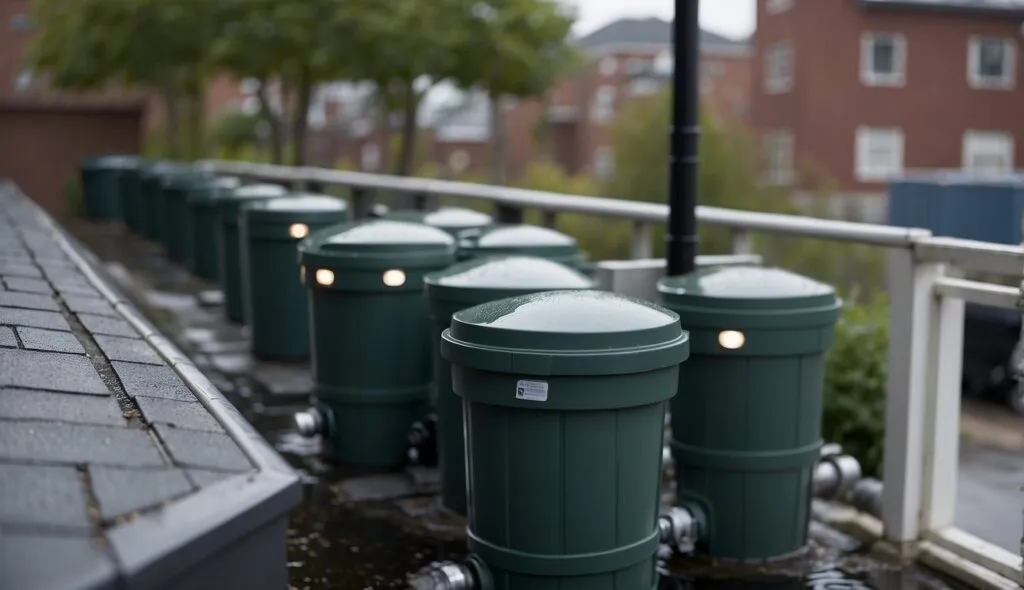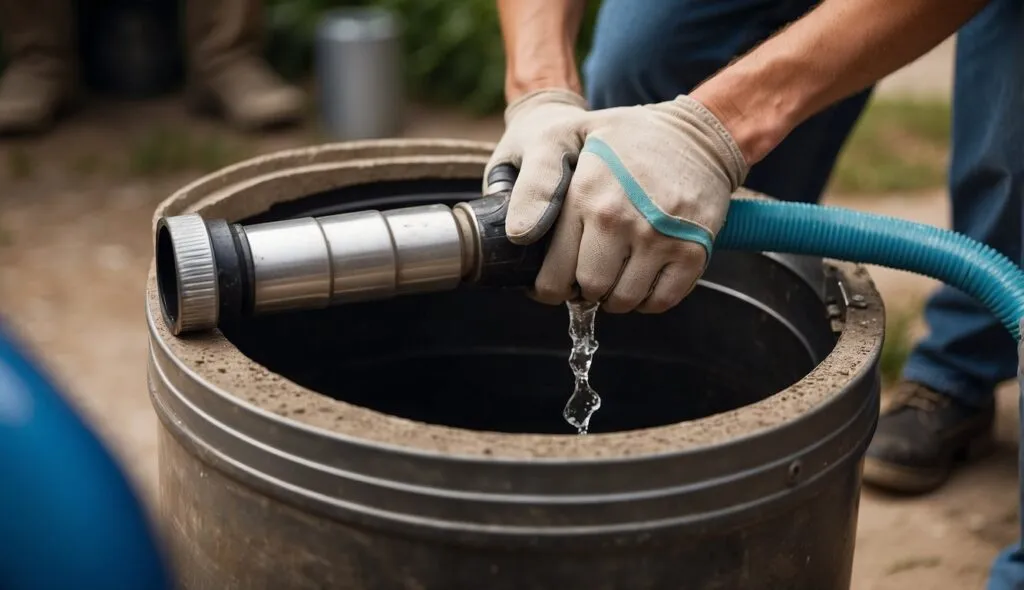Urban gardening has become increasingly popular in recent years as people look for ways to grow their own food and connect with nature. However, with water scarcity becoming a growing concern in many parts of the world, it’s important to consider how we can conserve water in our gardens. One solution is water recycling, which involves capturing and reusing water that would otherwise go to waste.
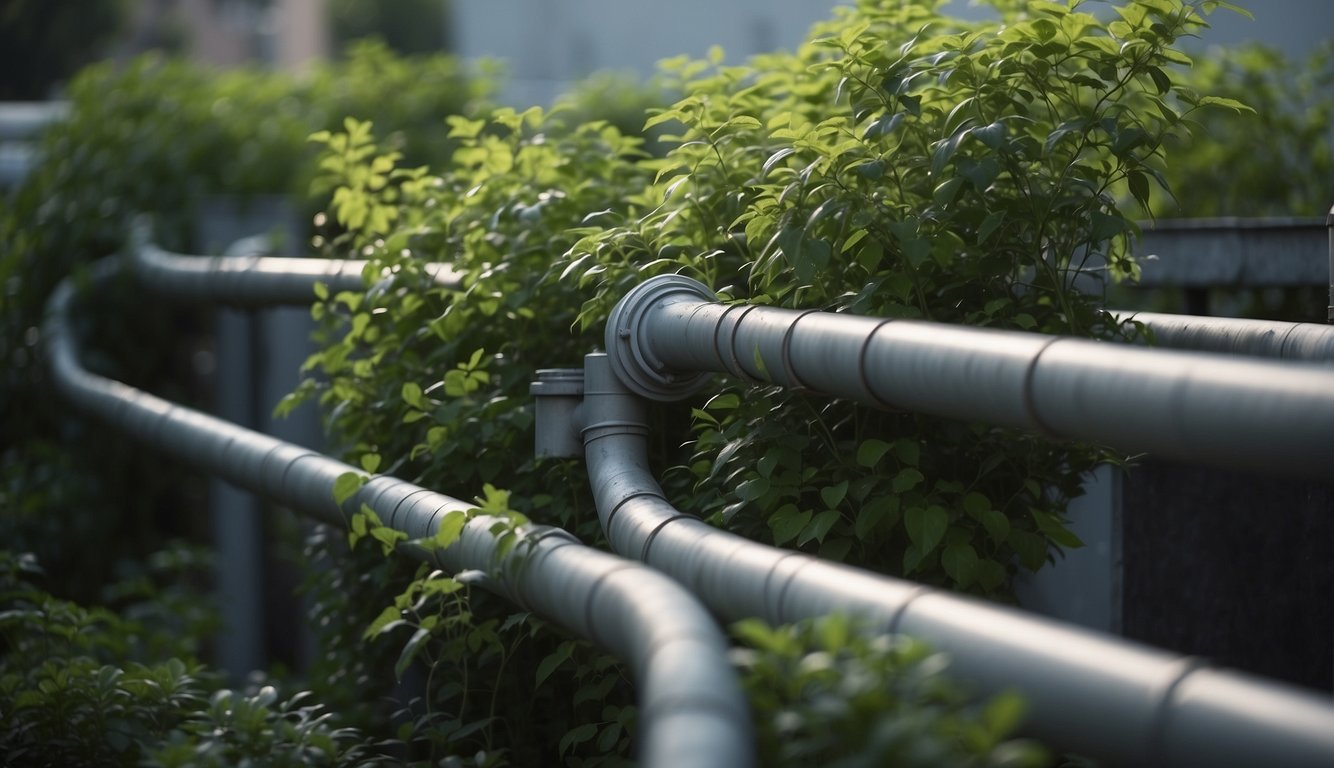
Water recycling is a simple yet effective way to conserve water in an urban garden. By capturing rainwater and reusing household greywater, gardeners can reduce their water usage and save money on their water bills. Greywater is wastewater that comes from sources such as sinks, showers, and washing machines, and can be safely used to irrigate plants with the right treatment. This not only saves water, but also reduces the amount of wastewater that needs to be treated and discharged into the environment.
Table of Contents
Key Takeaways
- Water recycling is an effective way to conserve water in an urban garden.
- Greywater can be safely used to irrigate plants with the right treatment.
- Water recycling not only saves water, but also reduces the amount of wastewater that needs to be treated and discharged into the environment.
The State of Water Scarcity and Reuse
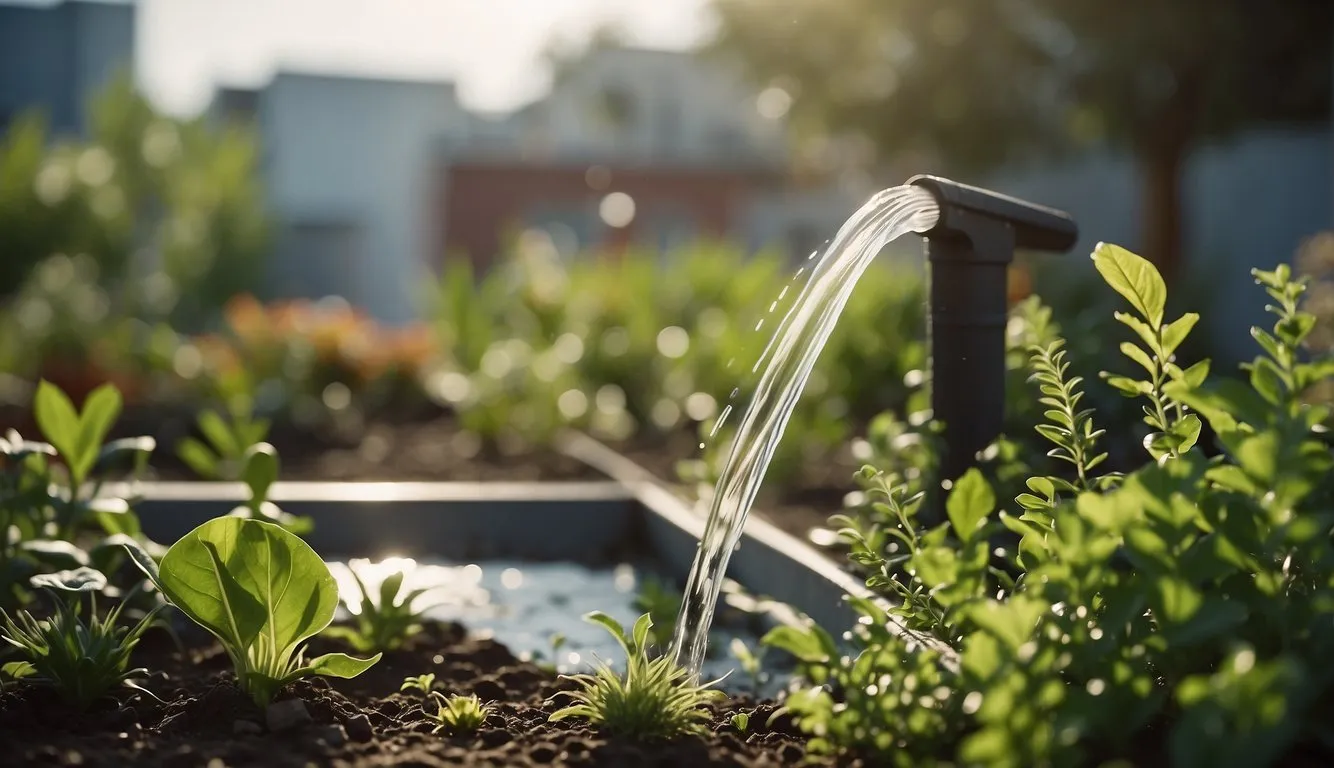
Water scarcity is a critical issue that affects many regions worldwide. The increasing demand for water, coupled with the effects of climate change, has led to a significant reduction in water availability in many areas. As a result, water reuse has become an essential strategy for addressing water scarcity and ensuring sustainable water management.
Wastewater treatment and reuse have significant economic, environmental, and public health benefits. Recycled water can be used for non-potable purposes, such as irrigation, industrial processes, and toilet flushing. By using recycled water, we can reduce the demand for freshwater, conserve water resources, and reduce the amount of wastewater discharged into the environment.
The circular economy approach to water management is gaining popularity, and water reuse is a critical component of this approach. By treating and reusing municipal wastewater, we can close the water cycle and create a more sustainable water management system. This approach not only conserves water resources but also reduces water pollution and promotes a healthier environment.
However, there are still challenges to overcome in implementing water reuse programs. Public acceptance, water rights issues, and concerns about water quality and human health are some of the challenges that need to be addressed. We must also consider the economic feasibility of water reuse programs and ensure that they are cost-effective and financially sustainable.
In conclusion, water scarcity is a significant challenge that requires a comprehensive and integrated approach to water management. Water reuse is a critical strategy for addressing water scarcity and ensuring sustainable water management. By treating and reusing municipal wastewater, we can create a more circular economy and promote a healthier environment for all.
Advancements in Water Treatment Technologies
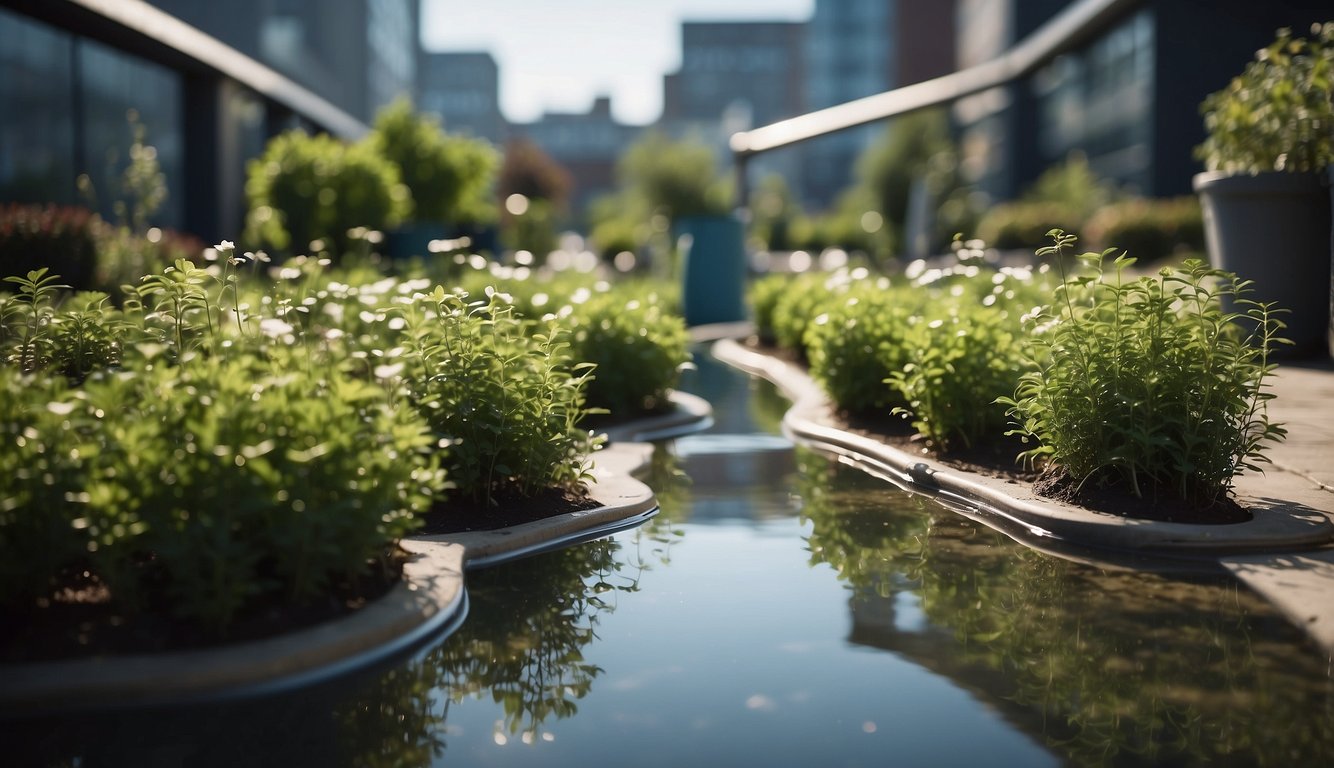
As urban garden water recycling gains popularity, new technologies are being developed to make the process more efficient and cost-effective. In this section, we will explore some of the most promising advancements in water treatment technologies.
Innovations in Desalination
Desalination is the process of removing salt and other minerals from seawater or brackish water to produce potable water. It has been a popular method of water treatment in arid regions with limited freshwater resources. However, traditional desalination methods are energy-intensive and expensive.
Recent innovations in desalination technology have made the process more efficient and cost-effective. For example, reverse osmosis (RO) is a desalination method that uses a semi-permeable membrane to remove salt and other impurities from water. Newer RO membranes are more durable and require less energy to operate, making desalination a more viable option for water treatment.
Efficiency of Greywater Reuse Systems
Greywater reuse systems are designed to capture and treat non-potable water from sources such as sinks, showers, and washing machines for reuse in irrigation or toilet flushing. These systems are becoming more popular in urban gardens as a way to reduce water usage and maintain healthy plants.
Advancements in greywater reuse systems have made them more efficient and cost-effective. For example, some systems use a combination of physical and biological treatment methods to remove impurities from greywater. This not only reduces the amount of water needed for irrigation but also improves soil quality by providing nutrients to plants.
Breakthroughs in Rainwater Harvesting
Rainwater harvesting is the process of collecting and storing rainwater for later use. This method of water treatment is becoming more popular in urban gardens as a way to reduce water usage and maintain healthy plants.
Breakthroughs in rainwater harvesting technology have made it easier and more cost-effective to collect and store rainwater. For example, some systems use a combination of filtration and storage tanks to capture and treat rainwater. This not only reduces the amount of water needed for irrigation but also helps to recharge aquifers and prevent drought.
In conclusion, advancements in water treatment technologies are making it easier and more cost-effective to recycle and reuse water in urban gardens. While there are still some barriers to widespread adoption, such as regulatory hurdles and public perception, we believe that these technologies will continue to improve and become more widely available in the coming years.
Urban Gardening and Its Role in Water Conservation
As urban landscapes continue to grow, it’s more important than ever to find ways to conserve water. Urban gardening provides an opportunity for us to reduce our water usage while still enjoying fresh produce and beautiful flowers.
Community Gardens and Local Food Production
Community gardens are a great way to promote local food production and reduce our dependence on imported foods. By growing our own vegetables and herbs, we can reduce the environmental impact of food transportation and support sustainable living.
In addition to promoting food security, community gardens also provide educational opportunities and job training for community members. They also help to promote biodiversity and improve air quality in urban areas.
Container and Vertical Gardening in Small Spaces
For those of us with limited space, container and vertical gardening are great options. With a windowsill, balcony, or small patio, we can grow our own fresh produce and flowers.
When container gardening, it’s important to use a potting mix with good drainage and to add mulch and organic fertilizers to help retain moisture. Vertical gardening allows us to grow more plants in less space, and can be done using a variety of materials such as trellises, hanging baskets, and wall-mounted planters.
By utilizing these methods, we can reduce our water usage and still enjoy the benefits of fresh produce and flowers. Urban gardening provides a sustainable and environmentally-friendly way to beautify our communities and promote local food production.
Economic and Environmental Impact of Water Reuse
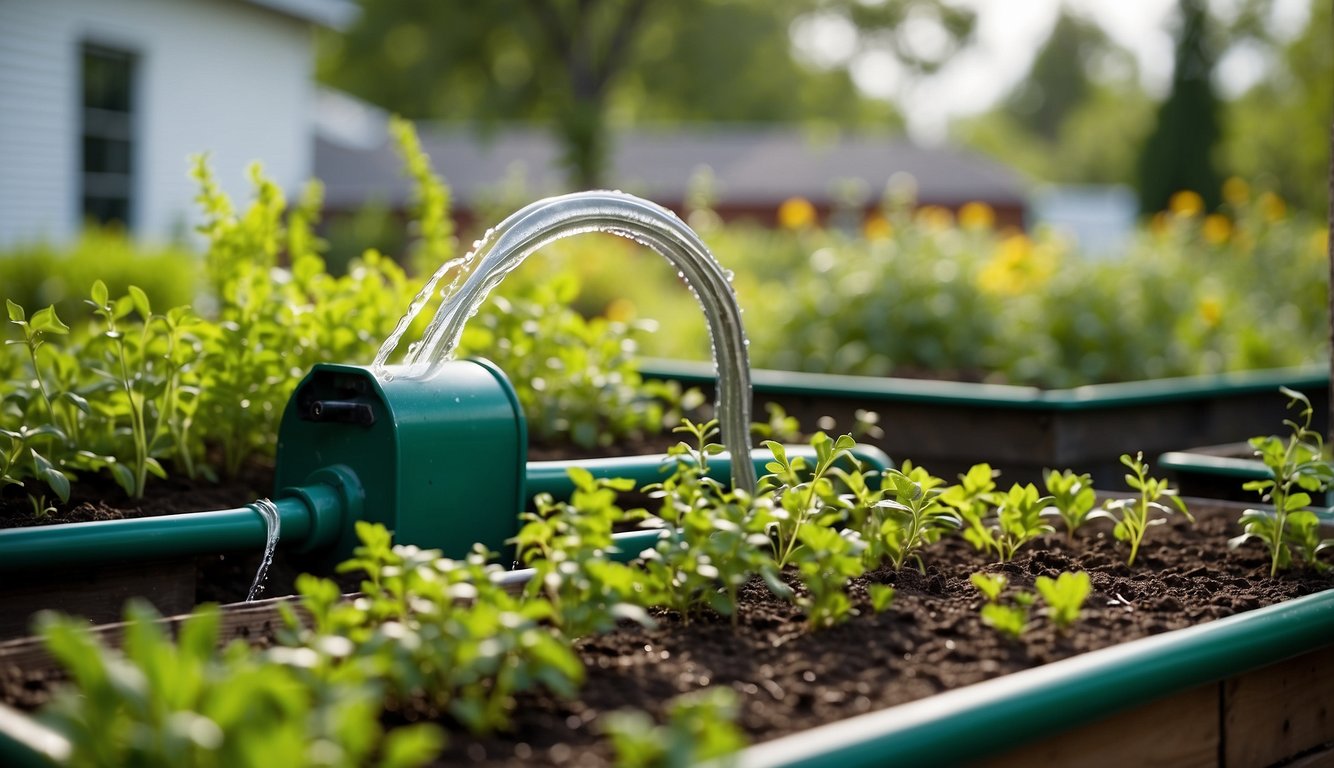
Water reuse has significant economic and environmental benefits. By recycling wastewater, we can conserve water, reduce water bills, and decrease the carbon footprint associated with water treatment and distribution. Additionally, reusing water for irrigation can reduce the need for fertilizers and pesticides, resulting in significant cost savings for gardeners and farmers alike.
Water reuse also has a positive impact on the environment. By recycling wastewater, we can reduce the amount of sewage that is released into our waterways, which can help prevent water pollution and protect aquatic ecosystems. Additionally, using recycled water for irrigation can help conserve water and reduce the impact of droughts.
Recycling water is an important step towards creating a sustainable and circular economy. By reusing water, we can reduce our reliance on freshwater sources and help protect our planet’s natural resources. Additionally, recycling water can help reduce the amount of waste that is generated by traditional linear systems, resulting in significant cost savings and environmental benefits.
To ensure that recycled water is safe for irrigation, it must undergo treatment to remove any harmful contaminants. Once treated, recycled water can be stored and used for irrigation, providing an efficient and sustainable source of water for gardening and farming.
Overall, the economic and environmental benefits of water reuse make it an important tool for addressing water scarcity, climate change, and other environmental challenges. By incorporating water reuse into our gardening and farming practices, we can create a more sustainable and resilient food system while protecting our planet’s natural resources.
Challenges and Regulatory Aspects in Wastewater Management
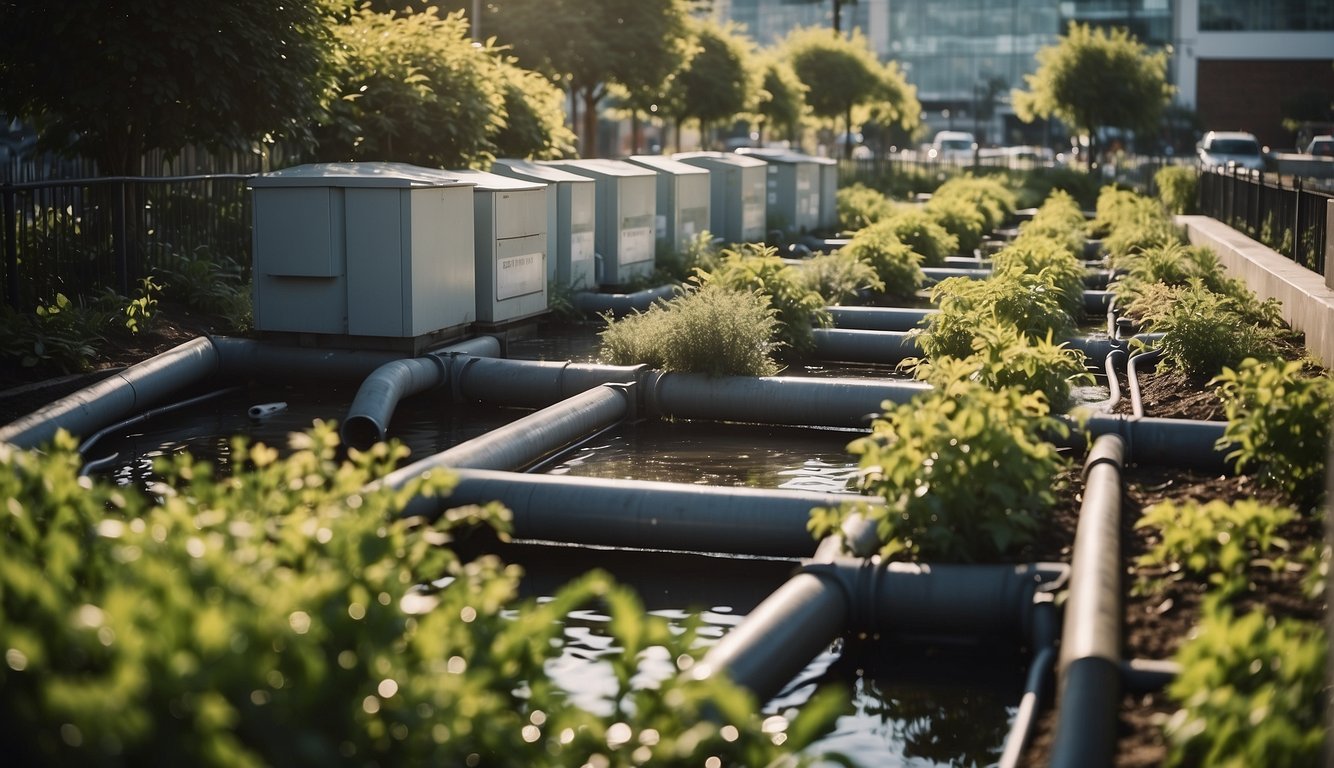
As we implement urban garden water recycling systems, we must address the challenges and regulatory aspects of wastewater management. Effective wastewater management is essential to ensure that the recycled water is safe for use in urban agriculture.
Regulatory bodies play a crucial role in wastewater management. They set standards and guidelines for the quality of wastewater and recycled water. These standards are based on the potential risks to public health and the environment. Compliance with these regulations is mandatory, and non-compliance can lead to significant penalties.
Monitoring of wastewater and recycled water is essential to ensure compliance with regulations. Monitoring can detect pathogens and chemicals that may pose a risk to public health and the environment. It also helps to identify potential issues with the wastewater treatment process.
In rural areas, where urban water security is not a major concern, wastewater management may not be a priority. However, as water shortages and demand increase, wastewater management becomes more critical. In urban areas, wastewater management is essential to ensure the sustainability of water resources.
Public health is a significant concern in wastewater management. Pathogens and chemicals in wastewater can pose a risk to public health. Proper treatment of wastewater is necessary to remove these contaminants and ensure that the recycled water is safe for use in urban agriculture.
In conclusion, addressing the challenges and regulatory aspects of wastewater management is crucial for the success of urban garden water recycling systems. Compliance with regulations, monitoring of wastewater, and proper treatment of wastewater are essential to ensure the safety of recycled water for use in urban agriculture.
Conclusion
In conclusion, urban garden water recycling is a sustainable and environmentally friendly way to conserve water and promote public health. By reusing water that would otherwise go to waste, we can reduce our water consumption and lessen our impact on the environment.
Not only does urban garden water recycling benefit the environment, but it also promotes public health. By using recycled water for irrigation, we can reduce the amount of harmful chemicals and pollutants that end up in our soil and waterways. This can lead to healthier and safer produce for consumption.
Furthermore, urban garden water recycling can help to reduce the strain on our municipal water systems. With increasing demands on our water supply, it is important to find ways to conserve water and reduce our reliance on traditional sources. By using recycled water for irrigation, we can help to alleviate some of this strain and ensure that our water supply is sustainable for future generations.
Overall, urban garden water recycling is a simple and effective way to promote sustainability, conserve water, reduce environmental impact, and promote public health. By implementing this practice in our urban gardens, we can create a more sustainable and resilient future for our communities.
Frequently Asked Questions
How can grey water be safely used in urban gardens?
Grey water can be safely used in urban gardens for irrigation purposes, but it should be properly treated and filtered before use. Grey water can contain harmful pathogens and chemicals that can be harmful to plants and humans, so it is important to use a filtration system to remove any contaminants. Additionally, grey water should not be used on edible plants, as it may contain harmful bacteria that can cause illness if ingested.
What are the different types of grey water systems suitable for residential use?
There are several types of grey water systems that are suitable for residential use, including gravity-fed systems, pump-based systems, and manual bucket systems. Gravity-fed systems are the simplest and most affordable option, as they rely on the natural flow of water to irrigate plants. Pump-based systems are more complex and require a pump to move water from the source to the garden. Manual bucket systems are the most labor-intensive option, as they require the user to manually collect and transport grey water to the garden.
What do plumbing codes typically require for greywater recycling in urban areas?
Plumbing codes can vary by location, but they typically require that greywater recycling systems be installed by a licensed plumber and meet certain safety and sanitation requirements. For example, systems must be properly labeled and isolated from potable water sources to prevent contamination. Additionally, greywater should not be stored for more than 24 hours to prevent the growth of harmful bacteria.
How can shower water be recycled for use in garden irrigation?
Shower water can be recycled for use in garden irrigation by using a grey water diverter valve, which diverts water from the shower drain to a separate tank or irrigation system. The water should be filtered and treated before use to remove any contaminants. It is also important to note that shower water may contain soap, shampoo, and other chemicals that can be harmful to plants, so it should be used sparingly and not on edible plants.
What are the best practices for reusing washing machine water in gardens?
The best practices for reusing washing machine water in gardens include using a high-quality filtration system to remove any contaminants, such as dirt, lint, and chemicals. The water should also be properly diluted before use, as it can be high in salt and other minerals that can be harmful to plants. Additionally, washing machine water should not be used on edible plants, as it may contain harmful bacteria and chemicals.
Are there any environmental concerns associated with using reclaimed water for irrigation?
There are some environmental concerns associated with using reclaimed water for irrigation, such as the potential for the water to contain harmful chemicals and pathogens. Additionally, using reclaimed water can contribute to the depletion of natural water sources, such as rivers and lakes, if not properly managed. It is important to use a high-quality filtration system and follow proper safety protocols when using reclaimed water for irrigation to minimize these risks.

